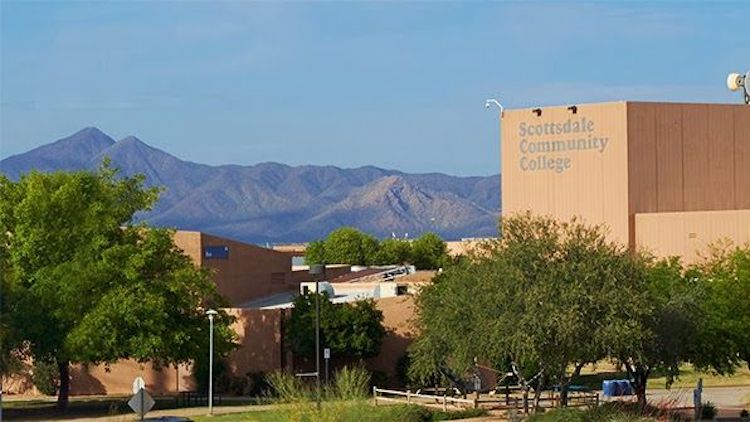- Home
- The Feature
- Governor Ducey Signs Bill To Expand Opportunities For Community College Students

Governor Ducey Signs Bill To Expand Opportunities For Community College Students
On Tuesday, Governor Doug Ducey signed legislation allowing community colleges to offer four-year degrees, paving the way for Arizona’s current and future workforces and expanding opportunities for populations that are historically underrepresented in higher education.
“Arizona’s community colleges play a critical role in supporting students of all ages and equipping our workforce with skills and resources,” said Governor Ducey. “Arizona is a school choice state, and today’s action is school choice for higher education. This is ‘Opportunity for All’ in action. It will allow students even more opportunities as they strengthen their education and expand their employment opportunities. Thank you to Senator Paul Boyer and Representative Becky Nutt for leading on legislation that supports Arizona’s higher education students and our talented workforce.”
As the state moves forward from the pandemic, Senate Bill 1453 is an important and timely shift to reskill and upskill Arizona’s workforce to meet the needs of the growing economy and provide a pathway to economic prosperity for more Arizonans.
“As more and more jobs come to Arizona, we need to make sure our workforce is ready to meet the demand,” said Senator Paul Boyer. “Community colleges equip students with much-needed skills, and expanding their degree programs will benefit adult students of all ages and strengthen Arizona’s workforce. It will also draw more talented students and diverse employers to our state. Thank you, Governor Ducey, for signing Senate Bill 1453.”
Research suggests that these degrees may play an important role in better serving a racially and economically diverse student population. The students are typically adult learners who are working, often full-time, and who have considerable work experience that they do not want to abandon for full-time study toward the baccalaureate degree.
“Today’s legislation will help people in every corner of our state,” said Representative Becky Nutt, who helped spearhead these efforts. “Arizona has been a national leader in school choice for many years, and allowing community colleges to offer four-year degrees will take a step further in meeting the needs of adult students.”
The legislation will align Arizona with 23 other states, including all neighboring states, to allow community colleges to offer four-year degrees in limited circumstances.
“We are committed to helping our students connect with programs that fit their needs and prepare them for job opportunities,” said Yavapai College President Dr. Lisa Rhine. “There are a wide range of jobs available all across the state, and we are preparing our students to meet that demand and reach their goals. Allowing community colleges like Yavapai College to offer four-year degrees will save students money, draw more students to our school and build up our workforce. My thanks to the legislators who supported Senate Bill 1453, Governor Ducey for signing it, and everyone who supported this important reform.”
Under the legislation, community colleges opting to offer baccalaureate degrees must approve each program based on specific criteria, including workforce need, a financial and administrative analysis of the feasibility of offering the program, and mitigating duplication.
“At Eastern Arizona College, we’re ready to support and work with students who want to get a higher education and build a career,” said Eastern Arizona College President Todd Haynie. “The legislation signed by Governor Ducey provides an accessible way for Arizona students to continue their education and build a brighter future for themselves and their loved ones. When community colleges offer four-year degrees, it opens up opportunities for more students of all ages and backgrounds. Thank you to everyone who supported this bill.”
“Enabling Arizona’s community colleges to offer baccalaureate degrees will be very beneficial to San Carlos Apache College students by increasing the amount and diversity of choices available to them locally and throughout the State, if not the country, for pursuing their baccalaureate and higher-level degrees,” said San Carlos Apache Tribe Chairman Terry Rambler. “A more educated and skilled Arizona workforce will also increase business and personal income, grow revenues for the state to invest in other critical needs, and decrease dependency on social safety nets.”
“This is great news for Sierra Vista, home to one of the best community colleges in the nation. Our citizens will benefit from expanded educational opportunities,” said Sierra Vista Mayor Rick Mueller. “It will aid our ability to develop and maintain a skilled local workforce qualified to work high tech and medical jobs we have, which will bolster Sierra Vista’s economic development efforts and benefit our surrounding rural communities.”
“This legislation enhances school choice in our state by expanding access to affordable baccalaureate degrees and supports our economy by building a skilled workforce in the highest need areas, such as health care, information technology, police and fire science, and education,” Maricopa Community College District Interim Chancellor Dr. Steven Gonzales said in a letter.
“Community colleges offer our veterans quality education at affordable prices, allowing our community access to higher education and college completion,” Maricopa Veterans Education Taskforce President Calvin DeVoll said in a letter.
“…I am a busy mom of 9 active children, and it has not been easy to balance my personal, professional and academic life. However, having a supportive community college has been extremely instrumental in my journey to achieving my academic goals. I would be excited at the opportunity to stay at my current community college and save the money that I will need for the master’s level work that I plan to pursue,” Rio Salado Community College student Antonette Pearson said in a letter.
